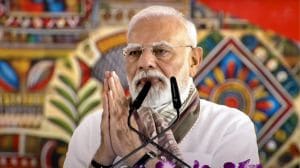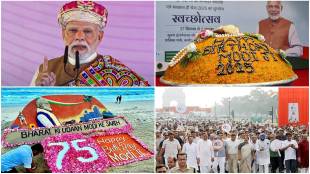Diwali, the festival of lights, is one of the most celebrated occasions in India, symbolizing the victory of good over evil. The festival is particularly significant in Hindu culture and spans five days, beginning with Dhanteras and culminating in Bhai Dooj. In 2024, Diwali’s timing has become a topic of discussion as devotees navigate the exact date for celebrations.
Understanding Diwali’s Timing
Diwali traditionally occurs on the Amavasya (new moon) of the Hindu month of Kartik, which usually falls in October or November. This year, the Amavasya Tithi extends from October 31 to November 1, leading to uncertainty and debate among devotees about the appropriate day for Diwali Puja.
Insights from Astrologers
Astrologer Vinod Soni Pauddar from Bhopal emphasizes that Diwali should be celebrated on the night of Amavasya. He notes that the Amavasya Tithi begins on October 31 at 2:40 PM and lasts until the morning of November 1. Pauddar stresses the significance of observing Diwali Puja on October 31, suggesting that celebrations on November 1 are considered inauspicious according to Shastra Samvat.
Echoing this, Pandit Nandkishore Mudgal from Devghar concurs that Diwali should primarily be celebrated on October 31, as the Amavasya officially begins at 3:12 PM on that day and ends at 5:14 PM on November 1. However, differing opinions arise in Ayodhya, where some local leaders advocate for the celebration to take place on November 1.
Key Dates and Timings for Diwali 2024
As preparations ramp up, here are the essential dates, timings, and rituals associated with Diwali in 2024:
- Dhanteras: Tuesday, October 29, 2024
- Puja Muhurat: 6:31 PM to 8:13 PM
- Naraka Chaturdashi: Thursday, October 31, 2024
- Abhyang Snan Muhurat: 5:20 AM to 6:32 AM
- Chaturdashi Tithi Begins: 1:15 PM on October 30
- Chaturdashi Tithi Ends: 3:52 PM on October 31
- Diwali (Lakshmi Puja): Friday, November 1, 2024
- Lakshmi Puja Muhurat: 5:36 PM to 6:16 PM
- Amavasya Tithi Begins: 3:52 PM on October 31
- Amavasya Tithi Ends: 6:16 PM on November 1
- Govardhan Puja: Saturday, November 2, 2024
- Morning Muhurat: 6:34 AM to 8:46 AM
- Evening Muhurat: 3:23 PM to 5:35 PM
- Bhai Dooj: Sunday, November 3, 2024
- Aparahna Time: 1:10 PM to 3:22 PM
Lakshmi Puja Timing
On the evening of Diwali, the Lakshmi Puja is a highlight, with devotees seeking blessings of prosperity and abundance. The auspicious timing for the ceremony this year is from 6:27 PM to 8:32 PM on October 31, with the Nishita Muhurta occurring from 11:39 PM to 12:31 AM.
School Holidays During Diwali 2024
As the celebration date draws closer, many schools and banks are preparing for holidays on both October 31 and November 1. Most institutions will observe October 31 as the primary holiday for Diwali, leading to a minimum five-day break for students, with some residential schools extending their holidays up to 15 days.
Significance of Diwali
Diwali holds immense cultural and religious significance, symbolizing the triumph of light over darkness. The festival is rooted in the epic Ramayana, celebrating Lord Rama’s return to Ayodhya after his exile. The residents of Ayodhya welcomed him by illuminating their homes with diyas, signifying joy and renewal.
In addition to honoring Lord Rama, Diwali is a time for worshiping Goddess Lakshmi, the deity of wealth, and Lord Ganesha, the remover of obstacles. Performing rituals during Diwali is believed to attract prosperity and good fortune.
Diwali Traditions and Rituals
The essence of Diwali is captured in its vibrant customs, community celebrations, and family gatherings:
- Home Preparations: Families clean and decorate their homes with rangoli, lanterns, and lights to invite positivity.
- Puja Ceremonies: On Diwali night, families gather for puja, offering flowers and sweets to Lakshmi and Ganesha.
- Lighting Diyas: The lighting of diyas represents the dispelling of darkness, creating a magical ambiance.
- Festive Sweets: Traditional sweets like ladoos and jalebis are prepared and shared, symbolizing joy and togetherness.
Daily Celebration Schedule
- Dhanteras: Cleaning homes and purchasing new items for good luck, worshiping Lord Kubera.
- Naraka Chaturdashi: Early morning baths and diya lighting in memory of Lord Krishna’s victory over Narakasura.
- Lakshmi Puja: Elaborate rituals performed in the evening, lighting diyas and offering sweets.
- Govardhan Puja: Celebrating Lord Krishna’s lifting of Govardhan Hill, often involving community festivities.
- Bhai Dooj: Sisters pray for brothers’ well-being, strengthening sibling bonds through rituals and gifts.









